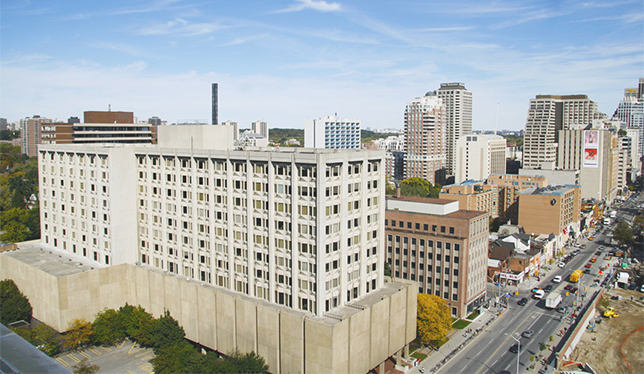
The Ontario Institute for Studies in Education at the University of Toronto has established a new centre for higher education research. Established last fall and publicly announced in February, the Centre for the Study of Canadian and International Higher Education, which goes by the acronym CIHE, will serve as a hub for all OISE-based research covering the higher education sector. CIHE founding director, Creso Sá, says the centre is the culmination of more than 40 years of growth in higher-education research and graduate studies at OISE.
“We’re eleven researchers in the centre, which positions us as definitely among the very largest research units in higher education in North America and in the world, but it’s a well-kept secret,” he says. “People don’t look at OISE and see just how much we cover in terms of higher education research, both in terms of topical areas and in terms of areas of expertise, geographically speaking.” CIHE’s goal is to bring the centre’s research and researchers into public policy debates around higher education in an organized and sustained fashion.
Dr. Sá traces the discipline of higher education scholarship back to the United States around the late 1950s. “As education expanded and institutions became more complex, institutional leaders started looking at some of the problems they face and wanted a greater understanding of them,” he says. At the outset, most researchers in the field came out of political science, economy, sociology, history and philosophy departments.
At OISE, higher education has been a recognized area of scholarship since 1977. Dr. Sá notes that the field has significantly expanded and internationalized since the ’90s. “It’s become more institutionalized. More and more now you see higher education programs, typically graduate programs, that train researchers, scholars and administrators in diverse areas such as student development, institutional research and policy.” (CIHE’s four streams of expertise are higher education policy, governance and organization; student experience and participation; comparative and international education in such places as the U.S., Brazil, Australia, China and Asia more widely; and postsecondary education systems and sectors.)
As for the future of the field, Dr. Sá says he and his colleagues would like to see the emergence of national datasets on postsecondary education so that researchers might engage in in-depth comparative studies of institutional performance and organization. “We don’t understand, as a higher education research community, too much about how Canadian universities operate. We tend to make extrapolations and generalizations based on the American experience and American literature. We don’t have the very robust evidentiary based research. I’d like to see more of that work done for sure.”
It’s about time! Very excited about this.
This is a great initiative and I applaud the four streams of expertise that you have identified for CIHE.
Congratulations to Dr. Sá, and I look forward to learning from the Centre about new research on higher education. There is an emerging community of researchers interested in comparative international post-secondary military and police education, and I think we have lots to learn from you.